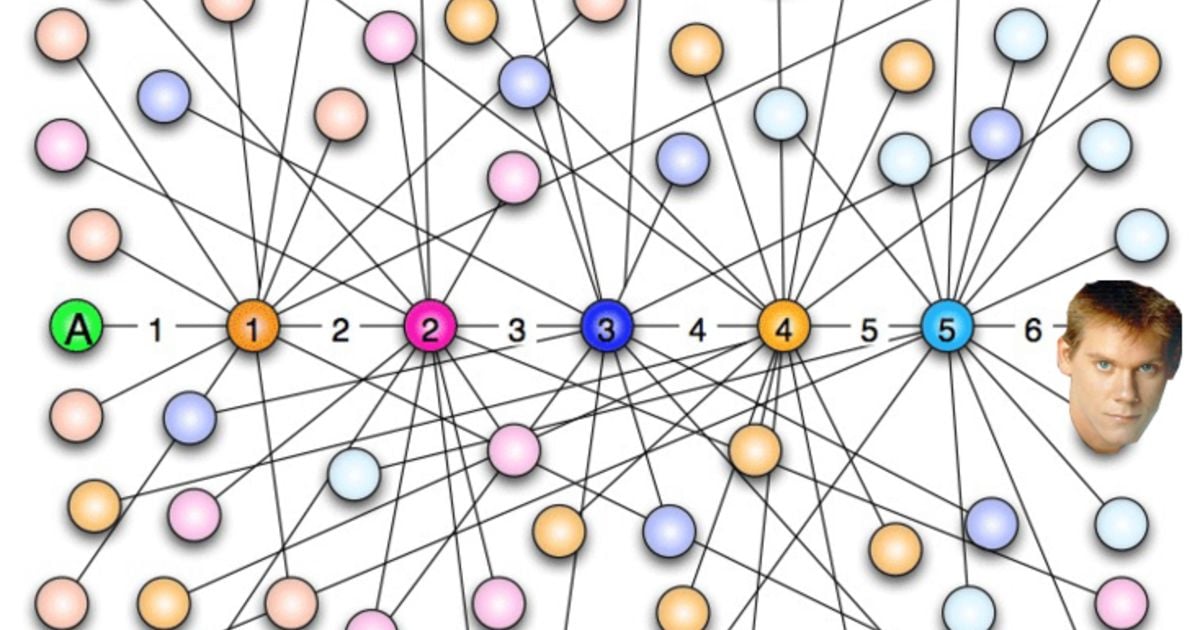
There are things we think about or do every day that take us another degree of separation from what really matters at work – measurable results. 6 degrees of separation refers to the idea that everyone is approximately six or fewer steps away, by way of introduction, from any other person in the world (think 6 degrees of Kevin Bacon).
We were thinking about this idea, but in a different way. We asked, how many steps are we away from what really matters at work? What are the links that separate workers from the end result?
Separation #1: Office Hours.
If you have office hours, the first thing people focus on is getting there on time. Every moment of the morning is spent on activities getting ready, fighting traffic, and beating the clock. There are multiple facets of office life that get in the way of the work, like acceptable office attire, long commutes (Do I have enough gas? Will I make the train/bus?), kid juggling, errand running, and bad weather. At the end of the day, there is a reverse set of issues. What is the acceptable time to leave? If weather is bad, everyone is talking and worrying about getting home safely, not the work. And, who's leaving early? Who got to come in late? How can I do that? (so much Sludge, so little time!) It’s not so much the “office” that is the problem, as it is a culture of “work must happen in the office during these hours of the day.”
Separation #2: Tardiness Policy
We’re not sure if there’s anything more humiliating for an adult than getting marked “tardy” at work. Wasn’t that left behind in grade school? Assuming you’re late for work and get a “talking to” from the boss and a bad mark on your file, now what do you spend the rest of the day thinking about? The whole day is squandered in shame, worry, stress, and humiliation. How can I get back in the bosses good graces? And the work is secondary.
Separation #3: Time off Policy
Time-off policies are based on putting in the appropriate amount of TIME to get TIME OFF. The focus is entirely on when and how to access time away from the office, regardless of whether or not measurable results are met. I deserve my time off. I've earned my time off. I'm entitled to my time off.
Separation #4: Performance Appraisals
Scheduled performance appraisals put off focusing on measurable results until performance appraisal time. It's event-based and keeps us from driving towards clear and measurable results on an ongoing basis. Performance appraisals leave room for subjective, not objective conversations. There is nothing agile or nimble about performance appraisals. Setting goals for a year out and expecting they will be relevant at the end of that time is ludicrous and a waste of time.
Separation #5: Time-tracking
If there are any time-tracking policies in place for hours worked or hours worked against a project, the first focus is on TIME. How much time should I say I put in? What sounds right? Do I sound dedicated? Or perhaps inefficient? Wait - better look at the time I recorded - how will it be perceived? How do I let people know how much time I put in outside office hours? Schedule emails to send in the middle of the night? Am I putting in enough time to look promotable? Is 6 hours the right amount of time for that piece of the project? Should it be more? Less? Do I look like I'm not skilled enough? Too skilled? Your employees are doing this if they have to track their time, guaranteed.
Separation #6: Flexible Work Program
Flexible work programs reinforce all of the above: Reinforces office hours, focuses on time-off, makes me track time. The focus in a flexible work program is on where I work (telework, remote work) or what time I work (flex hours or compressed work week). This means the focus is NOT on the work.
What are the everyday things that are keeping you or your employees from focusing on the work? Share with us in the comments!